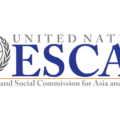Intern – Economic Affairs
Bangkok, Thailand
JOB DETAIL
Work Location
This internship is designed to be full-time and in person but can be adjusted based on the needs of the successful candidate.
Expected duration
Maximum 6 months
Duties and Responsibilities
The Transport Division/Transport Research and Policy Section internship is up to 6 months maximum. The starting period of internship will be from 1 August 2024 onwards. The internship is UNPAID and full-time. Interns work five days per week (35 hours) under the supervision of a staff member in the division or section to which they are assigned. During the time of COVID-19 Pandemic, it would be a virtual long-distance internship. Responsibilities GroupBox1 Daily responsibilities will depend on the individual’s background and the intern’s assigned office as well as the internship period. Duties may include, but are not limited to: • Research on one/more of the themes: environmental and social dimension of transport/public transport, climate change impacts on transport; reducing emissions from transport; sustainable urban mobility; electric mobility, socially inclusive public transport; resilient transport systems; assessment of state of transport and urban mobility; advocacy of sustainable transport policies to ESCAP member countries and cities; • Support the editor in review of articles and finalizing the Transport and Communications Bulletin for Asia and the Pacific, maintain contacts with authors, review and editing of manuscripts, preparation of editorial statement, necessary liaison with staff • Support in preparing case studies and background materials for planned meetings and workshops on sustainable transport, • Support in preparing, editing and finalizing research outputs (policy briefs, blogs, publications, technical reports) of the section; • Undertake literature review on the selected theme(s), identify research gaps and propose research topics and methods; • Identify and collect data from primary and secondary sources, select an appropriate methodology and conduct analysis of trend of transport development in countries/cities; • Review, analyze and compile the collected data and information, and prepare a report including the findings and conclusions, incorporating appropriate tables, graphs, charts with references; • Prepare presentations on the work or the findings and outcomes of the internship including lessons learned to the Division’s staff; • Coordinate and liaise, as necessary, with Transport Division staff of ESCAP, to identify key issues; • Prepare appropriate infographics and communication material for advocacy of the findings. The intern may also be asked to assist in the day-to-day work of the Division/Section, support to projects, preparation of meetings/workshops if required. He/She is expected to familiarize him/herself, to a limited extent, with administrative work of the Division and other tasks that are typical of UN organizations.
Qualifications/special skills
To qualify for an internship with the United Nations Internship Programme, applicants must, at the time of application, meet one of the following requirements: (a) Be enrolled in, or have completed, a graduate school programme (second university degree or equivalent, or higher); or, (b) Be enrolled in, or have completed, the final academic year of a first university degree programme (minimum bachelor’s level or equivalent).
Languages
English and French are the working languages of the United Nations Secretariat. Fluency in spoken and written English is required to the internship. Knowledge of an additional official UN language is an asset. Arabic, Chinese, English, French, Russian and Spanish are the official languages of the United Nations Secretariat.
Additional Information
Competencies: The United Nations Core Competencies include: • Communication: Ability to draft clearly and concisely, good written and oral language skills. • Teamwork: Good interpersonal skills, ability to work collaboratively with colleagues from different national and cultural backgrounds to achieve organizational goals. • Client Orientation: Considers all those to whom services are provided to be ‘clients’ and seeks to see things from clients’ point of view. Assessment: Potential candidates will be contacted by the hiring manager directly for interview.
Intern Specific text
Interns are not financially remunerated by the United Nations. Costs and arrangements for travel, visas, accommodation and living expenses are the responsibility of interns or their sponsoring institutions. Interns who are not citizens or permanent residents of the country where the internship is undertaken, may be required to obtain the appropriate visa and work/employment authorization. Successful candidates should discuss their specific visa requirements before accepting the internship offer.
No Fee
THE UNITED NATIONS DOES NOT CHARGE A FEE AT ANY STAGE OF THE RECRUITMENT PROCESS (APPLICATION, INTERVIEW MEETING, PROCESSING, OR TRAINING). THE UNITED NATIONS DOES NOT CONCERN ITSELF WITH INFORMATION ON APPLICANTS’ BANK ACCOUNTS.


